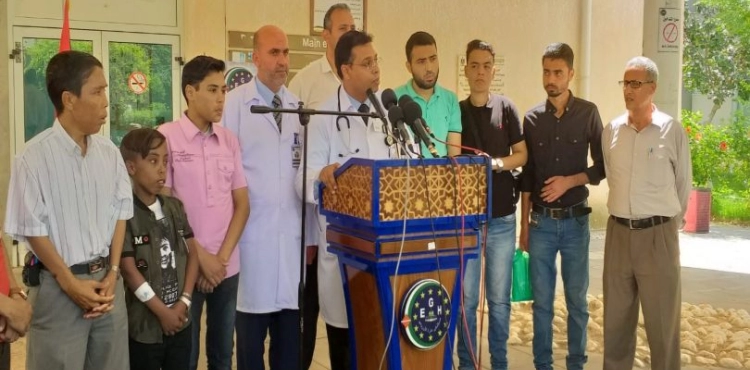The Health Ministry in Gaza said the lives of hundreds of patients with hemophilia and thalassemia are in serious danger due to the worsening shortage of medicines.
"The shortage of medicines and medical consumables suggests that some patients may not even be able to scream," said Dr. Hani Ayyash, a consultant on blood diseases. "Hemophilia and thalassemia patients are sick people who have painful details of the most difficult aspect of the crisis," Ayash told a press conference held by the Palestinian Health Ministry on Monday. He added: "We renew the call to all stakeholders to work urgently and urgently to strengthen the drug stocks of these patients, who watch the days of the age of the siege Guillotine and the crisis of medicine has long been increased in darkness to inspire." He pointed out that the number of Thalassemia patients in the West Bank and Gaza Strip is 866; of them, 309 cases in Gaza are between the highest and the middle grade, depending on the blood transfusion for survival. He pointed out that one of the most important complications of blood transfusion is "iron accumulation, which remains in the body and directly affects vital organs such as the heart, liver, pancreas and glands." "If these complications are not treated properly and correctly with the use of iron-repellent drugs, the above-mentioned organs will be affected by a failure in their vital and vital functions and thus death," Dr. Ayash said. "Some patients and as a result of the continuous rise in the level of iron stock analysis more than 20,000 (naturally less than 2000) have been infected with insulin-dependent diabetes and some of them have delayed growth." Regarding patients with hemophilia, Ayash explained that the number of patients (both A and B ) in the Gaza Strip is 125 cases, a genetic disease that lasts with the patient for life. He stressed that these patients can not survive "only with the availability of alternative medicine for the lack of clotting agent (Factor)." He noted: "There are patients who lost movement and suffered permanent disability due to the lack of quantities of Victor as required." He pointed out that the drugs "are not sold in private pharmacies, because the price is very expensive (the value of drug injection 1300 shekels about $ 360)." He continued: "One of the most important complications of the lack of medicines for these patients mobility disability (for schools and universities and the function) not to enjoy the play for children and the psychological and social impact, and not to treat the right way, and the inability to change and transplant the joints ended and there is no alternative medicine. Ayash warned that a healthy reality was "going worse for these patients."












